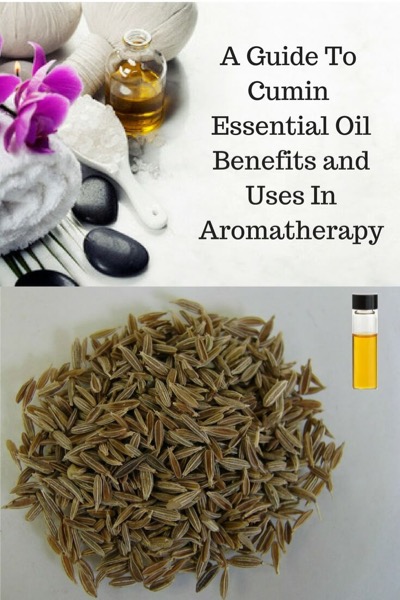- Home
- Essential Oil Profiles
- Cumin Essential Oil
As an affiliate for Bookshop, Amazon, and other programs, I may earn a small commission for products purchased through links. This doesn't affect the price you pay. Privacy policy and disclosures.
Search this site:
Guide to Cumin Essential Oil Benefits and Uses
While cumin is best known as a spice for cooking, cumin essential oil (Cuminum cyminum) may help calm nerves, relieve muscle aches and pains, and reduce some digestive complaints.

Basic Cumin Facts
Plant family: Umbelliferae/Apiaceae
Production: Steam distilled from the seeds of the cumin plant.
Aroma: Distinctive, spicy, earthy, warm, powerful, with "unwashed sweaty body odor' nuances, according to Listening to Scent.
Perfume/Aromatic note: Middle to Base.
Is cumin oil safe to use during pregnancy? No.
Is
cumin oil safe for children? Some sources suggest not using with
children under 2 years. Otherwise, dilute well and test for skin
reactions.
Cautions: May cause photosensitivity when applied to
the skin. Do not expose skin to UV rays for at least 12 hours after
applying the oil. May irritate sensitive skin.
When you buy cumin
oil, check the method of extraction. If the oil is cold-pressed or
expeller-pressed, it is a carrier oil (vegetable oil) and not an
essential oil, regardless of what the packaging states. Most cumin essential oil is steam distilled, although a
CO2-extracted version is available.
Main components:
- cuminaldehyde 19.8–40.0%
- gamma-terpinene 11.2–32.0%
- beta-pinene 4.4–17.7%
- p-cymene 5.9–17.5%
Source: Essential Oil Safety, 2nd Ed.
Cumin Aromatherapy Benefits
Aromatherapy: A Complete Guide to the Healing Art says that in Ayurveda cumin is believed to stimulate saliva and other digestive juices and relieve digestive-related headaches. "The fragrance counteracts emotional and physical exhaustion and helps instill stability."
Essential Oils: All Natural Remedies: Cumin is stimulating and lessens fatigue, calms nerves and lifts spirits, and eases digestive discomfort.
The Encyclopedia of Essential Oils (updated edition): Cumin may help improve circulation and ease indigestion, flatulence, headaches, and nervous exhaustion.
Aromatherapy For Health Professionals: Cumin may fight fungus and inflammation, is calming, and is useful for the digestive system.
Ron Guba, "Cumin," Essential News, Vol. 3, December 2000: Cumin is very calming and may promote sleep. You can use the oil to help relieve headaches, muscle pain, and osteoarthritis. This essential oil is also a digestive tonic that may help relieve conditions like poor appetite, Crohn’s disease, indigestion, and bowel problems.
A small study suggested cumin might help relieve the symptoms of IBS. The study used cumin extract containing 2% essential oil orally. Caution: Consult a professional before using an essential oil internally.
The Magic of Ayurveda Aromatherapy (by Farida Irani): In ayurvedic aromatherapy, cumin has a pungent, bitter rasa (taste) and alleviates vata and kapha. Uses for this essential oil include improving apetite and energy and relieving flatulence, abdominal pain, diarrhea, scanty and irregular periods, asthma, coughs, colds, and sore throat. Mentally and emotionally, the oil is stimulating, uplifting, warming, and grounding.
Mixing Essential Oils for Magic: Cumin releases both negative emotions and negativity in the environment. Use the oil for protection, to attract prosperity and love, and to bring balance between the spiritual and the mundane.
Cumin Essential Oil Uses and Blends
Diffuse cumin to help relieve fatigue and raise spirits.
Make a warming massage oil to relieve joint pain and muscle aches or to rub on your abdomen for digestive complaints. Dilute to less than 0.5%.
For cellulite:
- 1 tablespoon almond oil
- 2 drops wheatgerm oil
- 2 to 3 drops orange or lemon essential oil
- 8 drops cumin essential oil
Blend ingredients. Use the oil blend to massage areas of cellulite.
Caution: Spot test this oil before using on a large area. Avoid sun or tanning bed for at least 12 to 24 hours after applying the oil.
Source: Aromatherapy: The Complete Guide to Plant and Flower Essences for Health and Beauty by Danièle Ryman
For an upset tummy:
- 2 drops cumin essential oil
- 4 drops ginger essential oil
- 5 drops peppermint essential oil
- 7 drops sweet orange essential oil
- Sweet almond oil
Add the essential oils to a two-ounce squeeze bottle. Fill the bottle with almond oil. Shake to mix well. Massage some of the blend on the abdomen as needed.
Source: Eden's Garden
Buy essential oils from Aromatics International (recommended).
Rocky Mountain Essential Oils.
Photo Credits: Cumin oil by Itineranttrader [Public domain via Wikimedia Commons]; Cumin seed by Maša Sinreih in Valentina Vivod (Own work) CC BY-SA 3.0, via Wikimedia Commons



